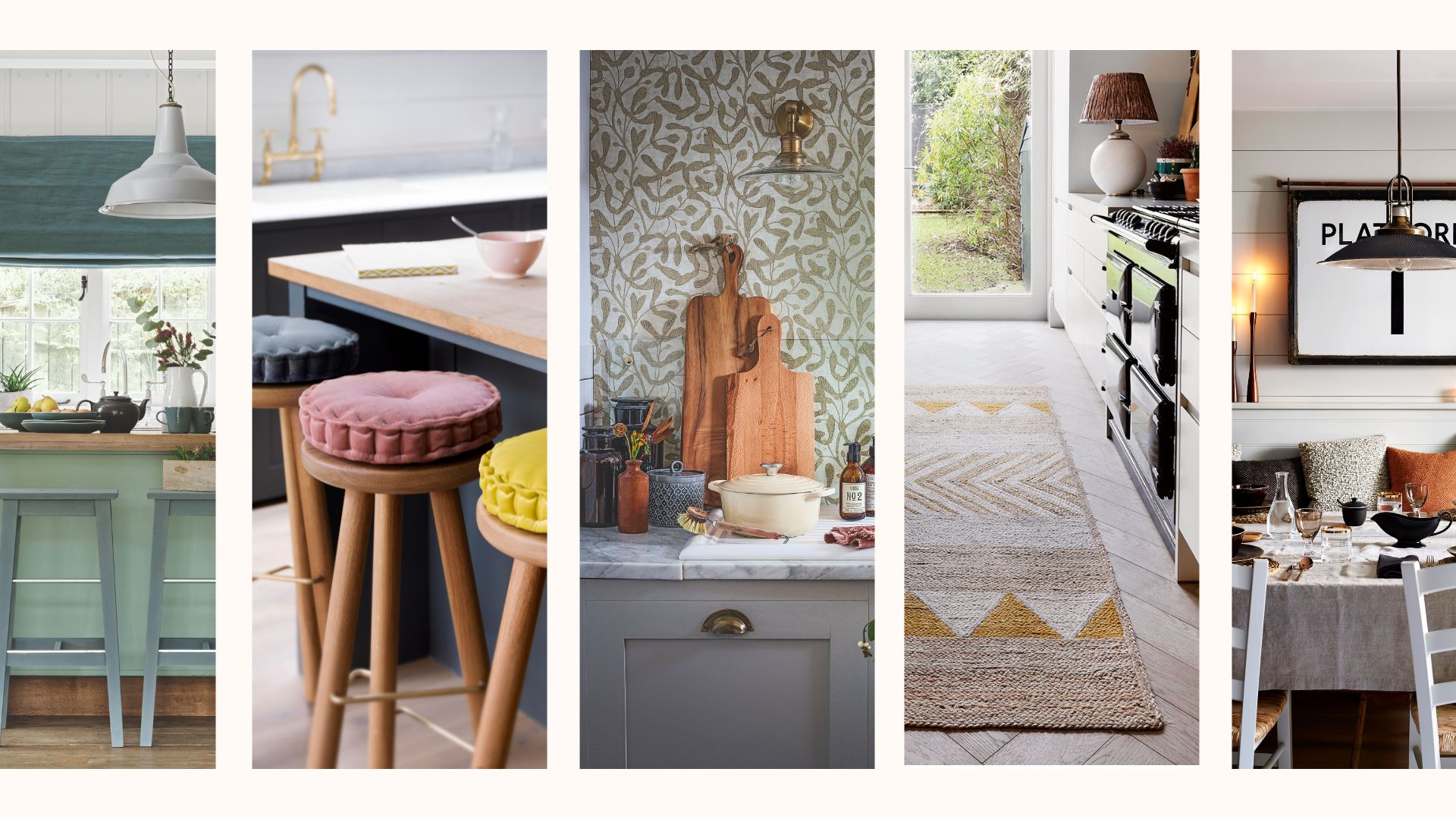
As the heart of the home, it's important to make a kitchen feel comfortable and inviting. But so often it's overlooked when it comes to elements of cosiness.
Making a kitchen look expensive is one thing, but making it feel cosy takes a different approach. In general, considering how all the elements suit the space is key when looking to make a home cosy. For instance, making a bedroom feel cosy will look different to the methods you employ to make a kitchen feel cosy.
Kitchens often serve as multi-functional spaces for cooking, dining, entertaining, and working. Therefore, it's only natural to want to make the space feel as comforting as possible. Luckily, there are plenty of easy ways to make the room feel snug and inviting without overlooking its function.
How to make a kitchen cosy: 9 expert tips
"Alone, the functional features of a kitchen like tile floors and stainless steel, can at times feel stark and cold," Jen Nash, head of design at Magnet. "There are lots of little design tricks you can use to inject the space with warmth and transform it into a cosy, inviting space that you can relax and unwind in, whilst still maintaining its functionality.’’
From introducing 'unexpected' lighting choices to create ambience to adding personal touches, these are the easiest ways to make a kitchen feel more homely and cosy.
1. Incorporate warm accent tones
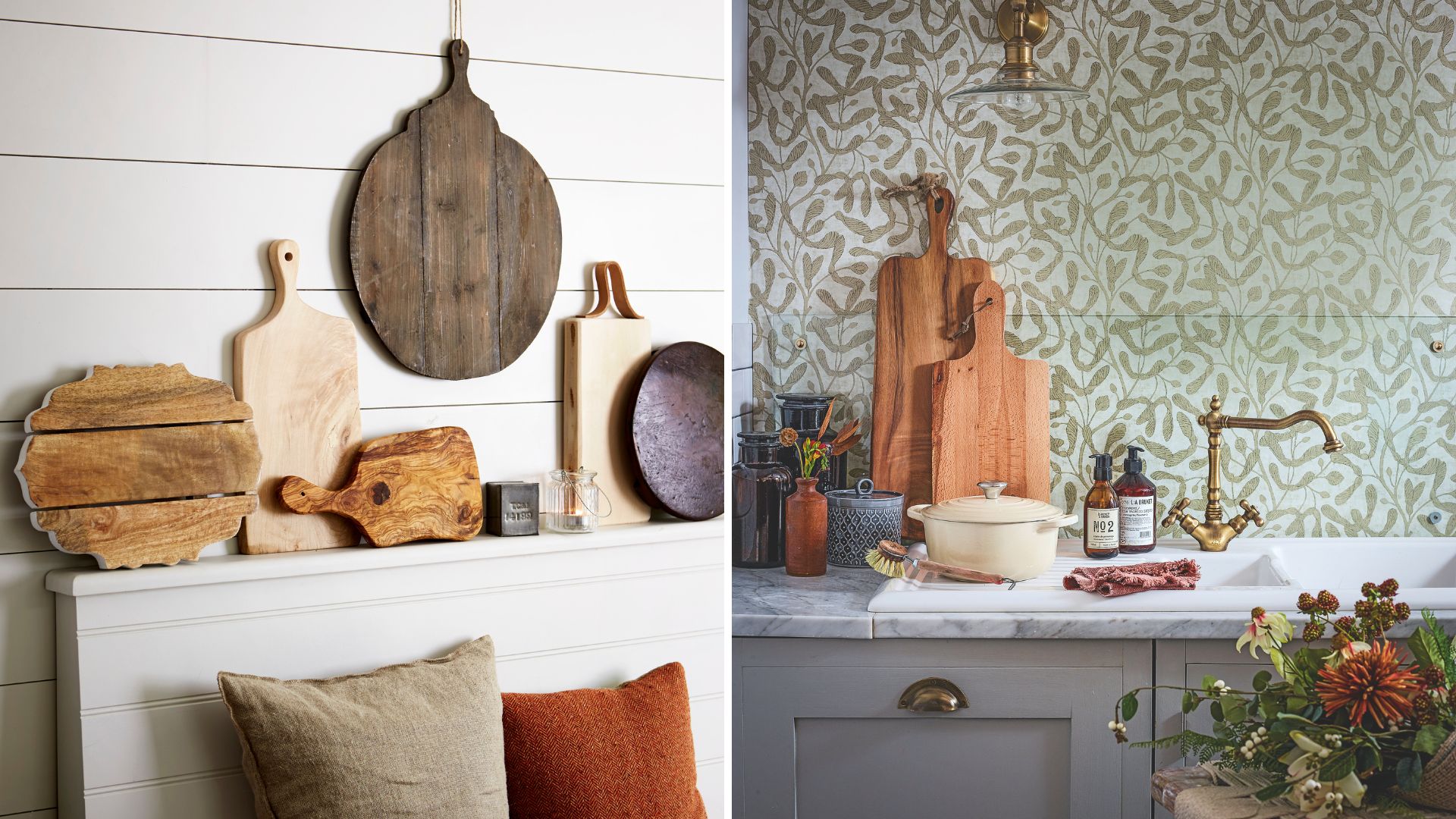
Even the most timeless kitchen colours can instantly feel cosier with the introduction of warm tones, be it in the form of the latest interior paint colours or with accessories such as colourful stoneware or rich wooden chopping boards.
“A cosy kitchen is a space that feels inviting and familiar, so opt for soft, warm colours such as rich terracotta and olive green, " says Jessica Inglis, brand manager at Second Nature.
"These warmer colours will instantly create a cosy interior and welcoming atmosphere that invites guests to rest and relax.”
"Incorporating warm natural materials like wood, leather and textiles in your kitchen will balance out the colder materials traditionally found in the space, such as tile and stone," Jen explains.
"From wooden chairs and tables to smaller accent details such as wooden coasters and fabric tea towels, weaving in these natural materials will add textural interest to the space and make the eye wonder.’’
2. Layer the light scheme
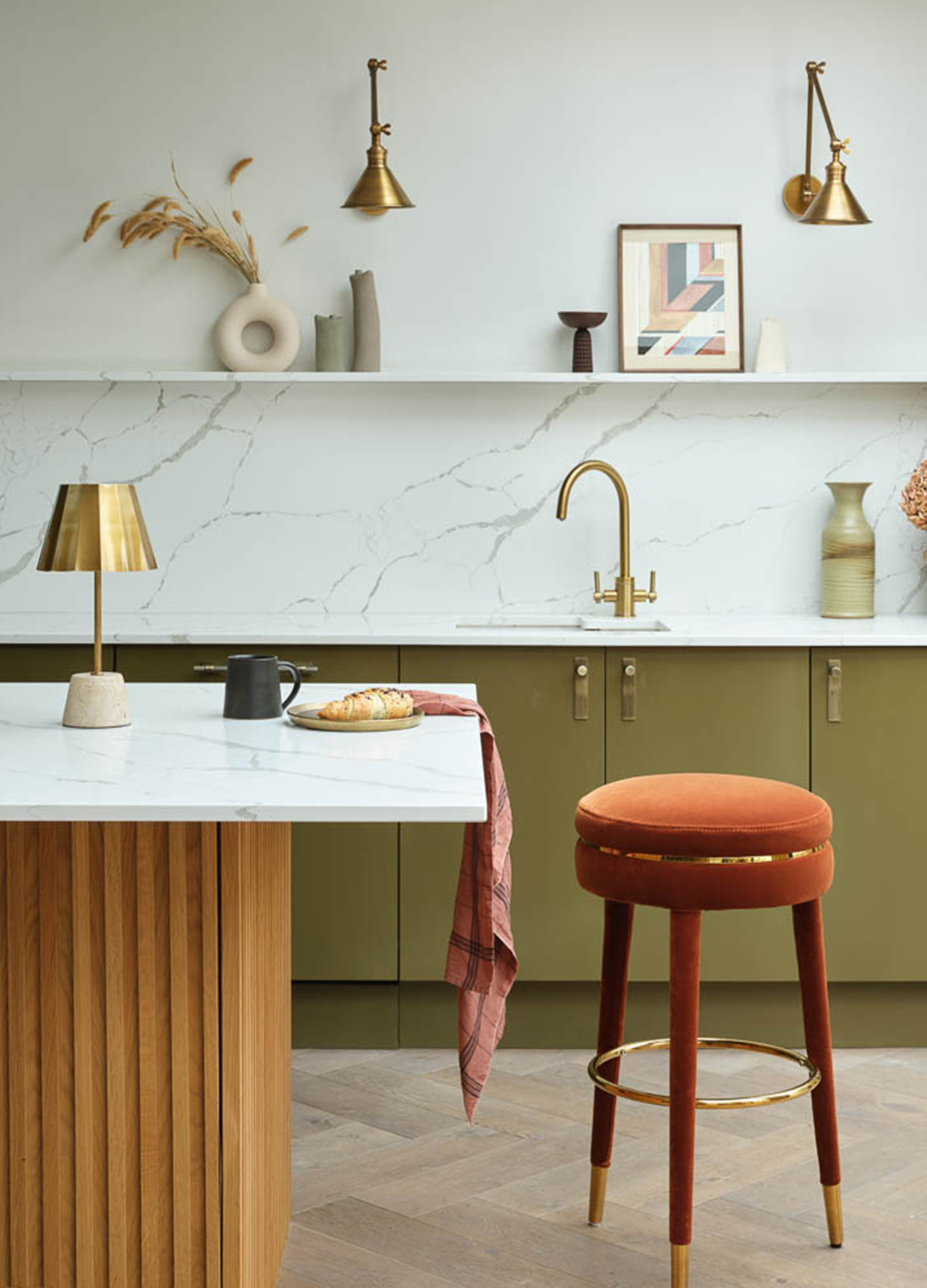
Lighting is always the best place to start when looking to alter the ambience of a room, and in a kitchen, a layered lighting scheme is essential to alter the occasion.
A layered approach to light allows you the flexibility to turn the lights up while cooking and reduce them to a warm glow when entertaining – and nothing says cosy more than a gentle, glowing light.
"Rather than relying solely on overhead lights, try layering with a mix of practical and decorative lighting that creates a warm, homely ambience," suggests Jo Plant, head of design at lighting emporium Pooky.
"For an open-plan kitchen diner, wall lights or feature lighting on shelves can add a sense of depth and highlight your favourite pieces, turning them into charming focal points."
“For task-focused areas like kitchen islands, pendant lights are both practical and stylish," says Jo. "Opt for three or five pendants, or experiment with different heights to add visual interest."
To further enhance the space, dimmer switches offer flexibility and control, letting you adjust lighting intensity to suit the mood, from brighter light for food prep to a softer glow for dining."
3. Introduce unexpected lighting choices
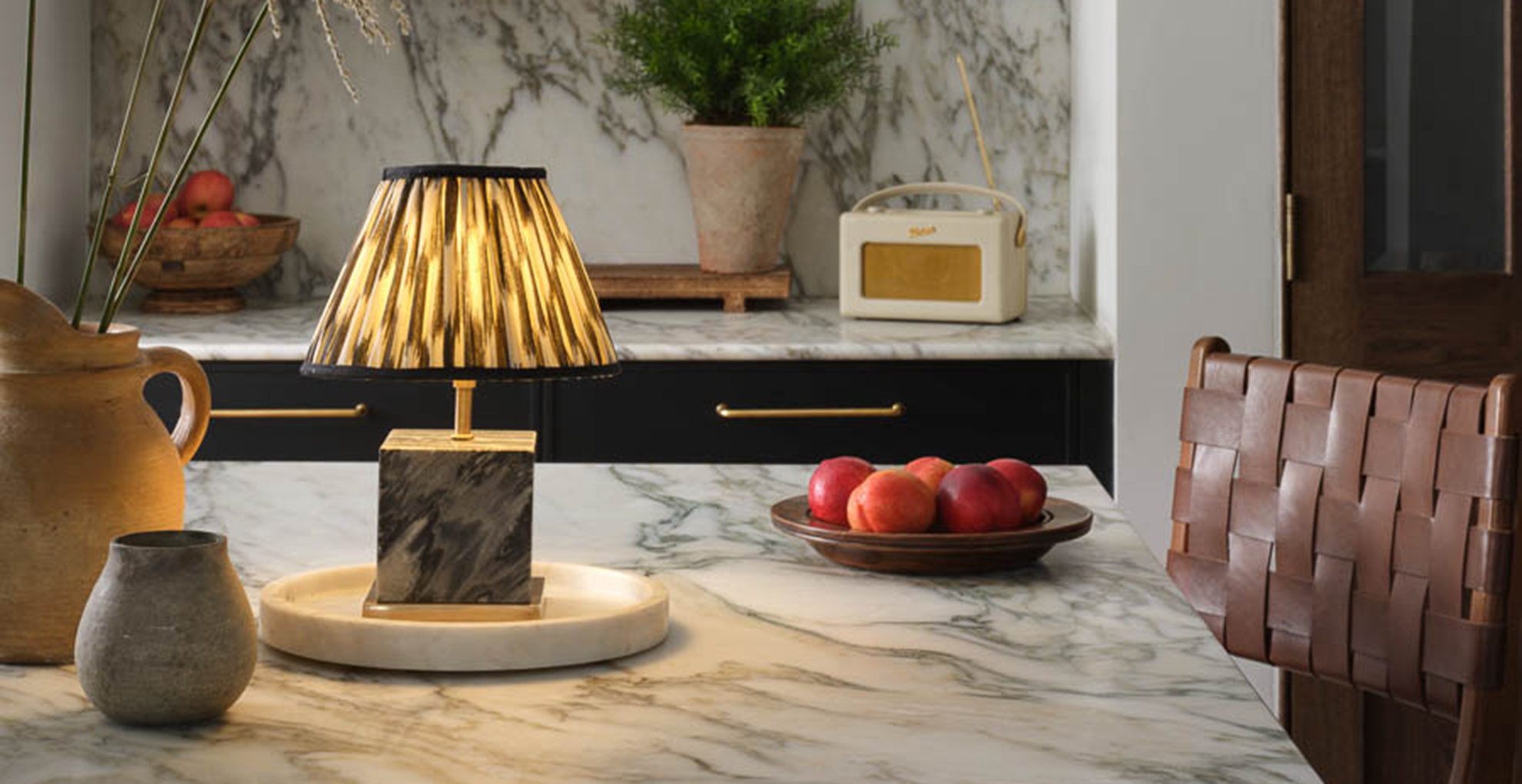
Introducing unexpected lighting choices can transform even the most clinical kitchen spaces into cosy, inviting spaces.
Lamps are commonplace in living rooms, bedrooms, and even hallways, yet they are rarely featured in the kitchen. I have one in my kitchen, which I prefer to use instead of the bright overhead lights because it just feels cosier by welcoming a warmer light colour temperature.
“To add a cosy touch, consider placing table or floor lamps on countertops or near seating areas," Jo advises. "A decorative table lamp brings a soft, atmospheric glow perfect for dinner parties or quiet evenings, while wall lights with fabric shades add an intimate, shabby chic feel."
"When it comes to placement, use lamps to illuminate dark corners or design details of the kitchen," advises Mara Rypacek Miller, founder of interiors retailer industville.co.uk "Consider placing them near the artwork, architectural detailing or even as a decorative finish to a kitchen bar cart to draw the eye to these areas.
"Choose styles with at least one design feature in common with the rest of the space - whether this is the colour, shape or material - to ensure a harmonious aesthetic in the room."
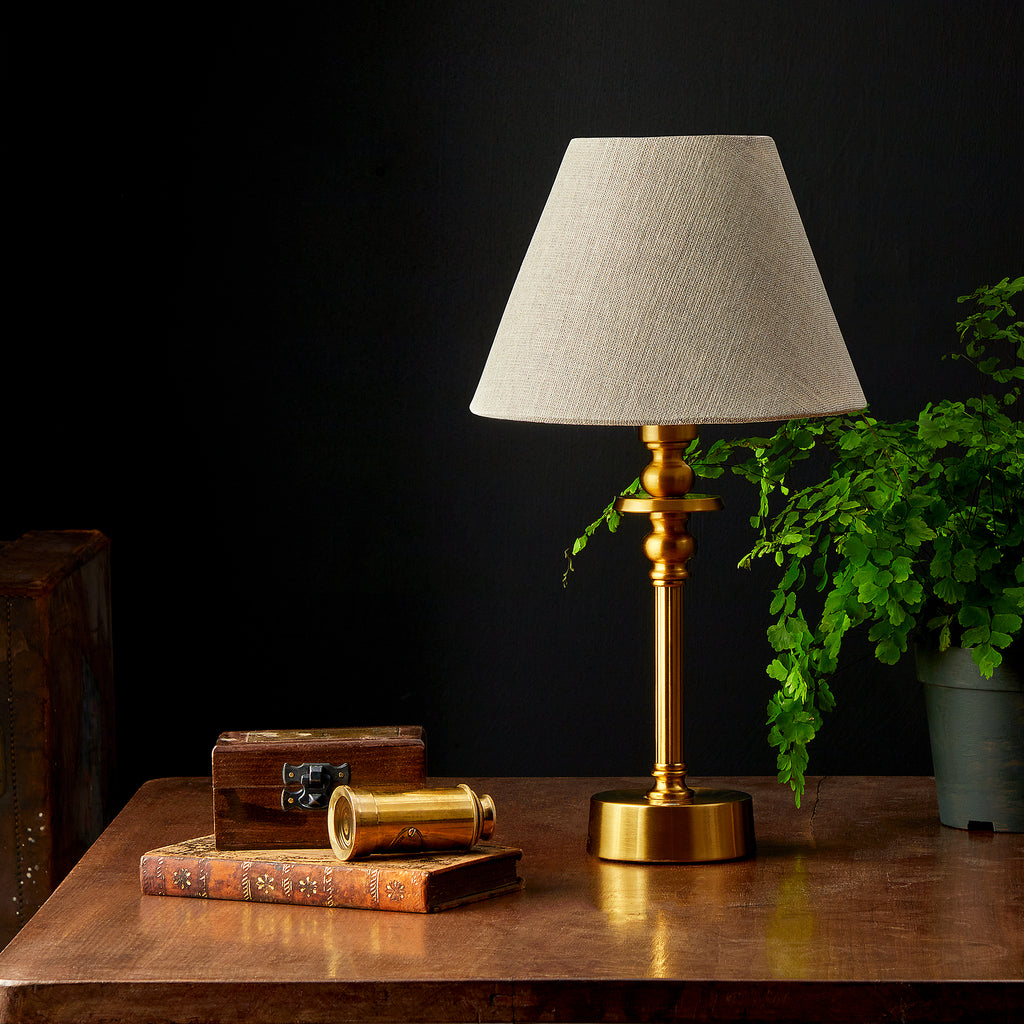
RRP: £122 | This stylish lamp was designed by famous interior designer Matthew Williamson. Aside from how good it looks this rechargeable Pooky lamp is a brilliant option for a kitchen because it gives you the freedom to place it anywhere, you're not restricted by plug points. This is also a good solution because power points are so valuable in kitchens for appliances, that you might not be able to sacrifice one for a lamp.
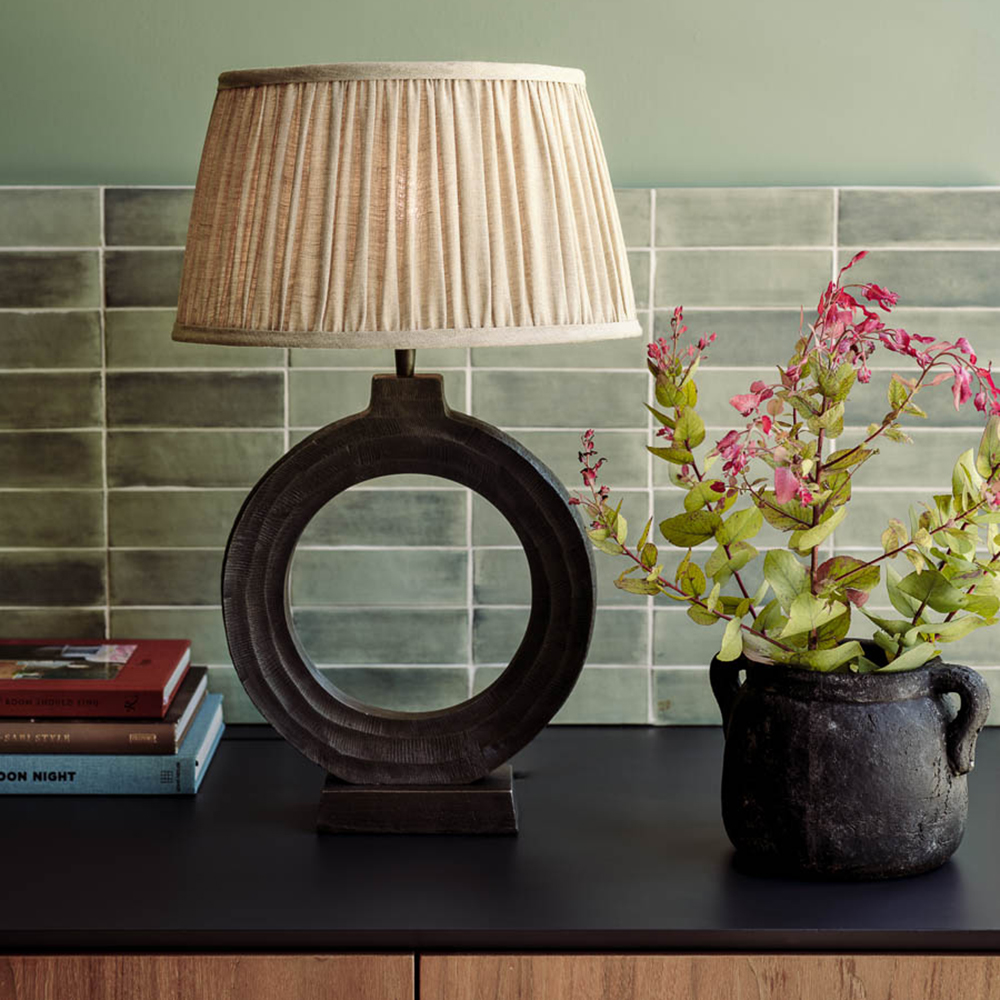
RRP: £159 | With a statement brass circle bass this table lamp is ideal for any room in need of stylish boost. The captivating design would usually feel most at home. in a living room but that's what makes it perfect to make a kitchen cosy, because it welcomes a sense of the laid back appeal most associated with a sitting room.
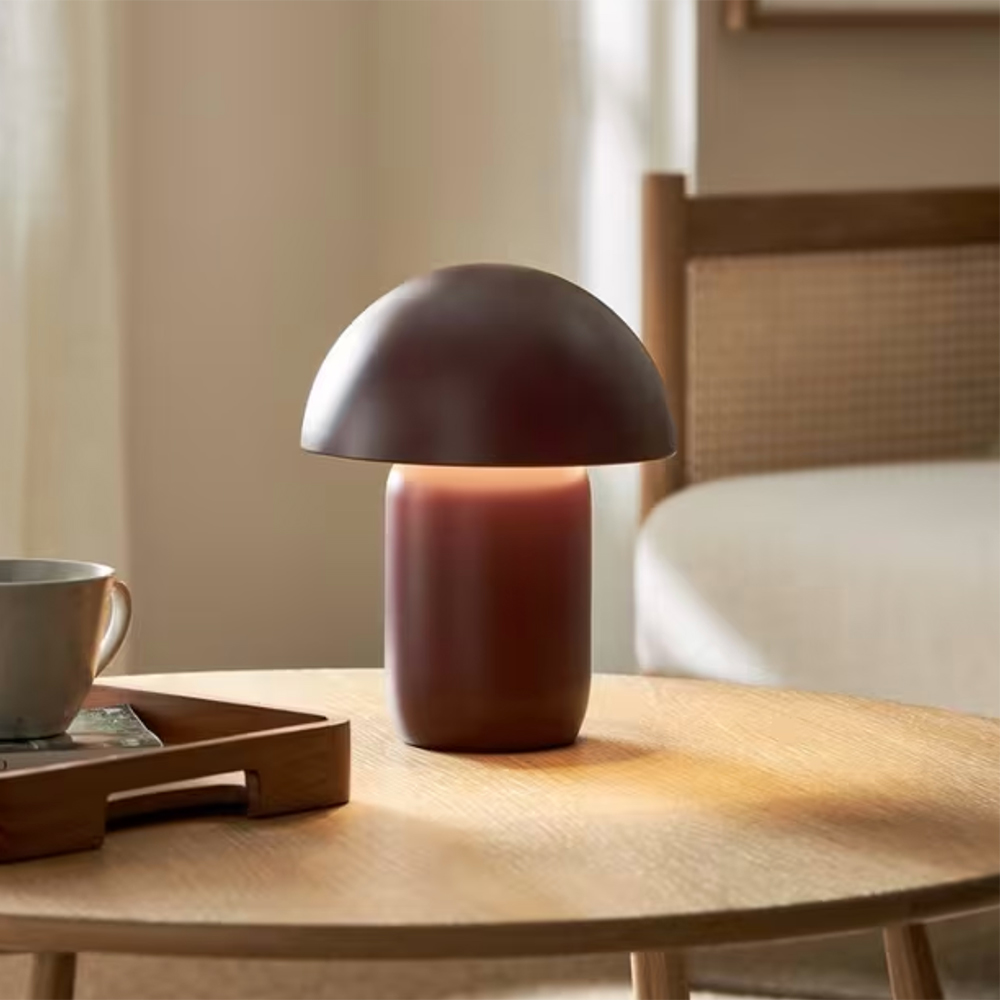
RRP: £65 | This best-selling design is not only rechargeable and wireless, but it is also dimmable which makes it perfect for creating a cosy atmosphere. It is also available in 12 different colours meaning there's a shades to suit all kitchen colour schemes.
Styling tip: I also have an array of the best flameless candles to add to the ambience without the worry of naked flames while I'm distracted when cooking and entertaining.
4. Welcome a rug
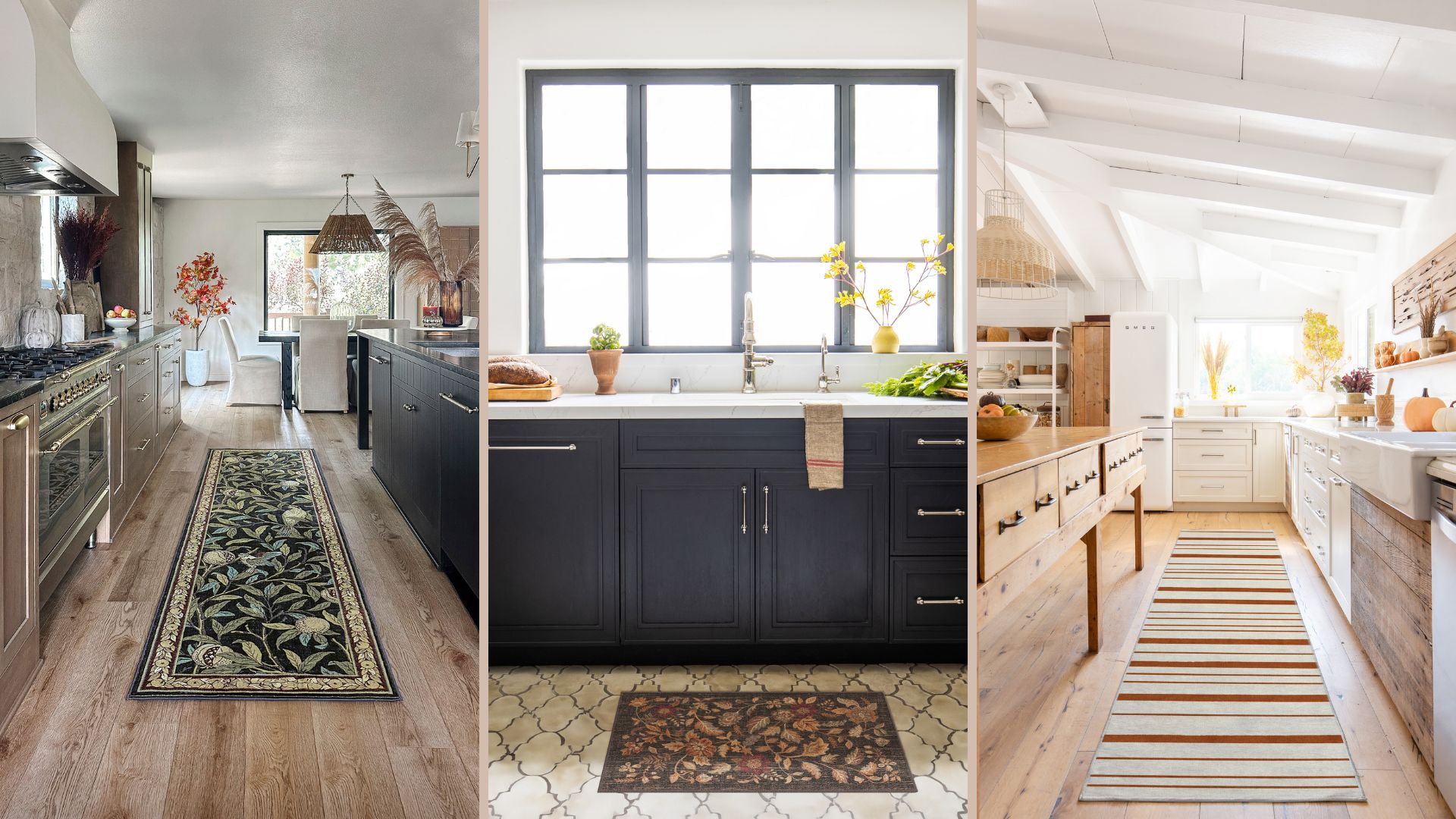
Like lamps, rugs are also overlooked for kitchen decor. Yet a rug can do wonders for transforming a room on a budget. This humble household accessory has the potential to make tiled, stone or wooden kitchen floors feel instantly warm underfoot
Of course, we're not forgetting the practical considerations of slippery floors with rugs on – be sure to choose a suitable backing. And let's not forget spills that can occur more frequently in a kitchen – factor in washability when choosing a rug for a cooking area.
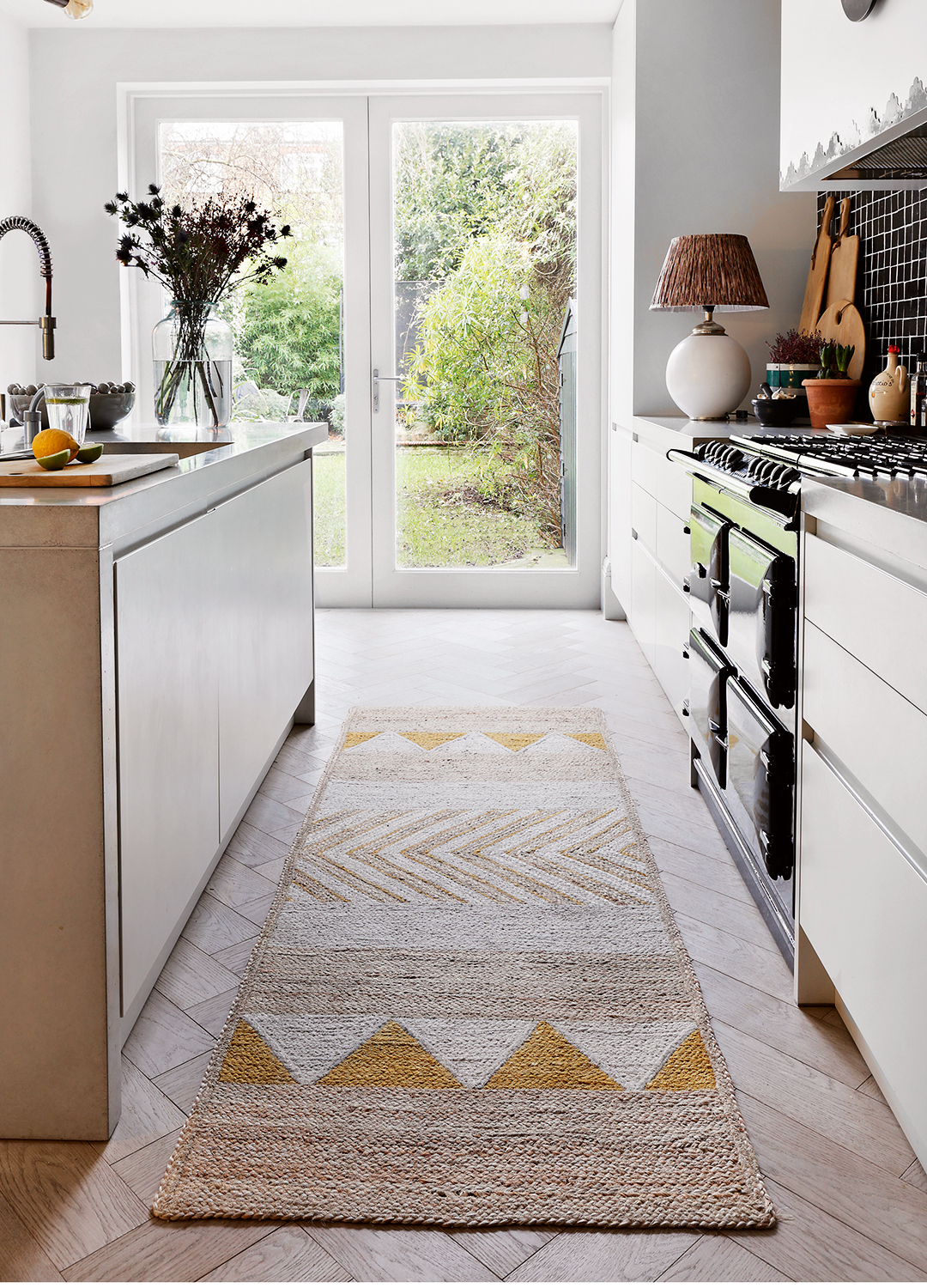
"When choosing a rug for the kitchen, there are many features to keep in mind to balance both style and functionality," says Cassandra Leisz, Sr. Creative Director at innovative interiors brand Ruggable.
- Washability: "A washable kitchen rug is the most suitable option as they will be prone to food spills, splatters and high foot traffic. Washable rugs make it easy to maintain a clean and fresh look without sacrificing comfort, style, or warmth.”
- Non-slip safety: “Equally important is the rug’s padding," says Cassandra. "Kitchen flooring tends to be tile, wood, or laminate, which can be slippery. Choose rugs with a non-slip pad to ensure the rug stays securely in place. This not only prevents accidents but also keeps your rug in one sturdy position at all times and keeps your rug from travelling. Cushioned pads can even provide extra support under foot when standing for long periods cleaning dishes, cooking, or meal prepping.”
- Size: The layout of your kitchen will determine the size of your rug. "For bigger, open-plan kitchens, consider a large rug to act as a focal point tying the space together," advises Cassandra. "If you have a smaller kitchen or island, a runner along the sides can be an excellent choice to enhance the visual appeal and provide comfort underfoot in high-traffic areas. A smaller rug under the sink or in front of the stove can add warmth and softness to the floor."
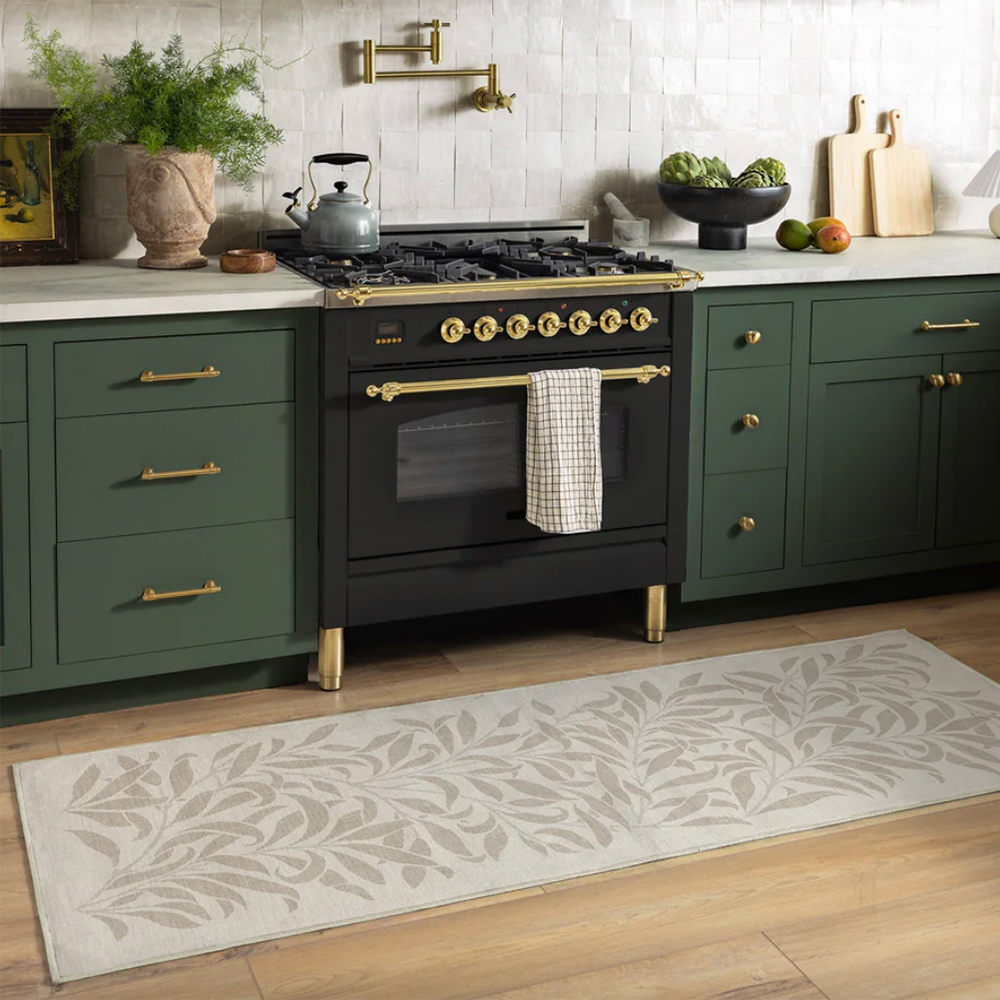
From £239 | This charming runner features an iconic William Morris print, ideal for adding a subtle hint of pattern to a kitchen scheme. No need to fear the prospect of a beige and cream pattern in a place of food, because the rug is water-resistant, stain-resistant and machine-washable.
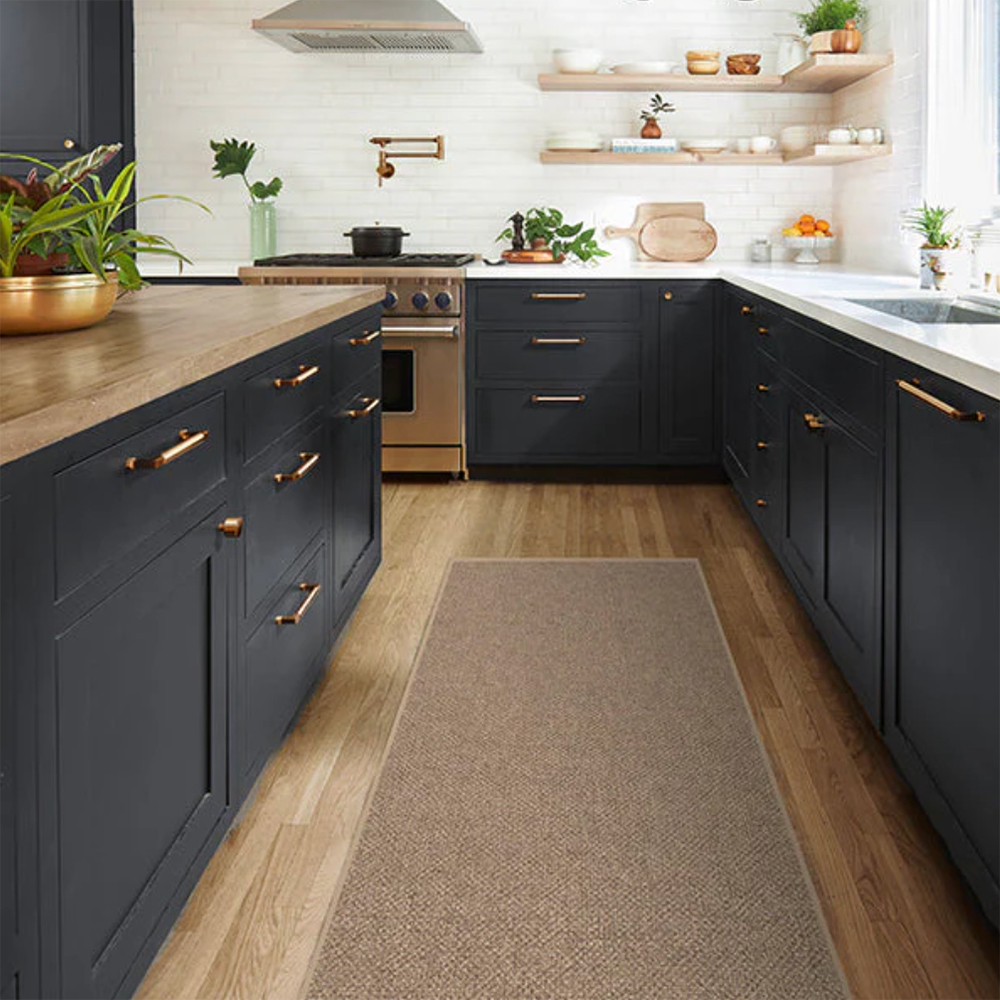
From £169 | With warm and earthy tone with natural jute texture this rug is a timeless choice for adding warming to kitchen floors without overwhelming the spec with colour and pattern – ideal for small kitchens. This washable rug blends shades of light and natural tan to create a heavy linen, burlap look. It is made using recycled + virgin polyester and polyurethane.
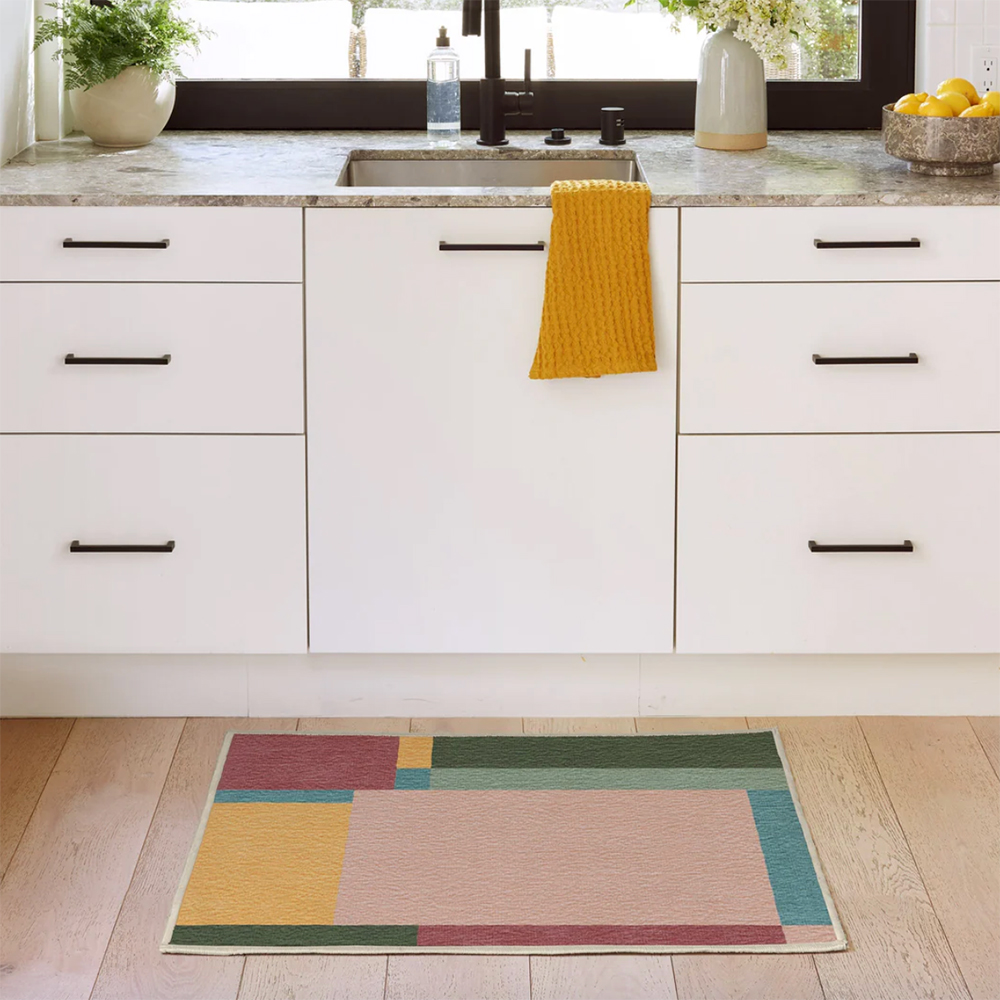
From £159 | Block colours are an impactful way to add warming colours without proving too distracting as that of alternative patterns. And there's no better way to add colour than introducing colours by the masters of colour; Pantone™
5. Embrace woven textures
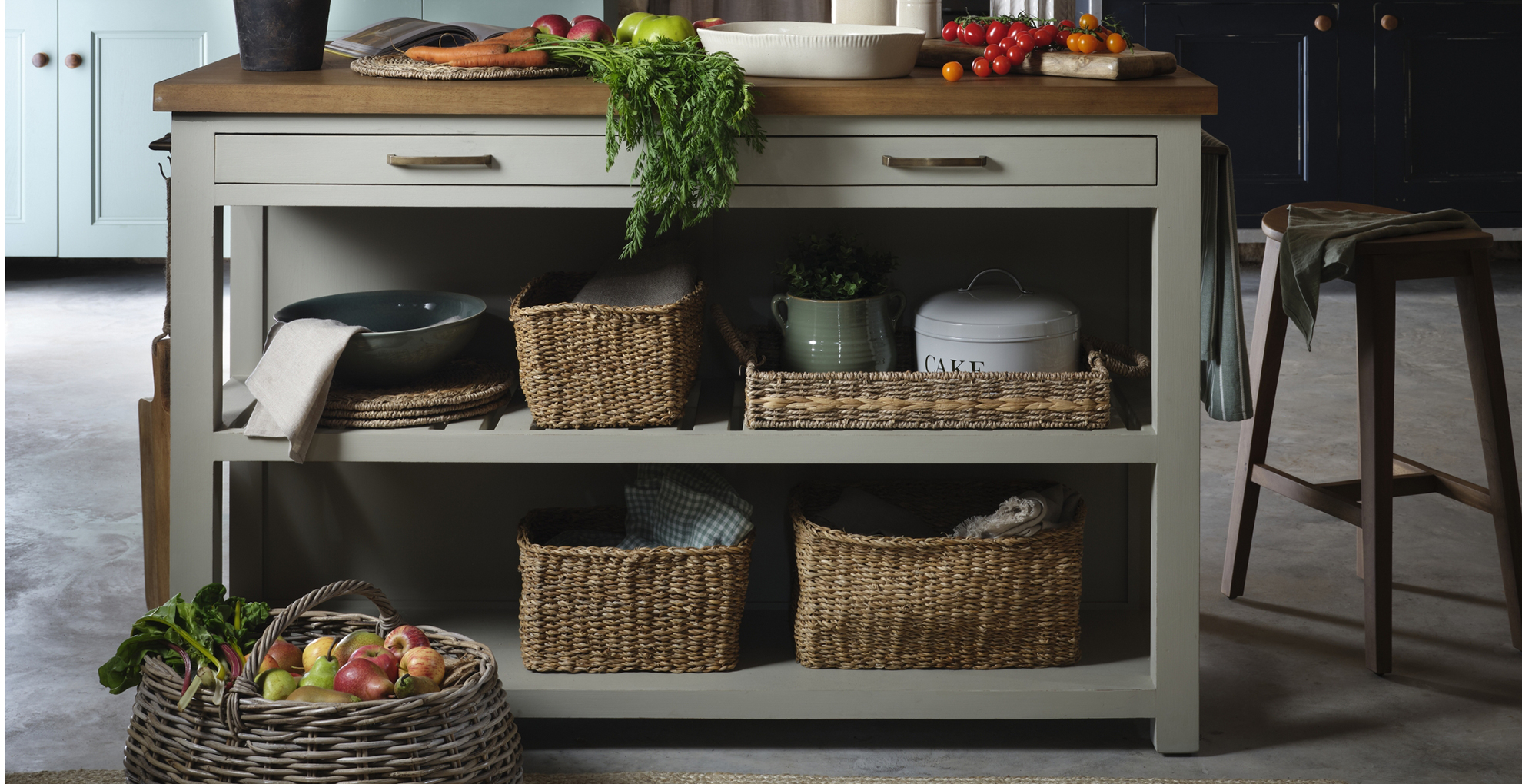
With so many hard surfaces, from countertops to cabinets, kitchens can begin to feel overwhelmingly cold and a bit sterile if there are no contrasting 'softer' textures.
The simple introduction of woven baskets and seagrass accessories can instantly make a kitchen feel cosy. The juxtaposition of hard marble, wood and stone against woven accessories prevents the space from feeling too hard.
"With the rise of farmhouse and country style kitchens, these textures are also very on trend and are a great way to add layers and depths to a design space," says Jen.
Use woven baskets to organise kitchen cabinets or a kitchen island to implement accessible storage that can soften the hard linear lines of kitchen furniture.
6. Layer soft furnishings
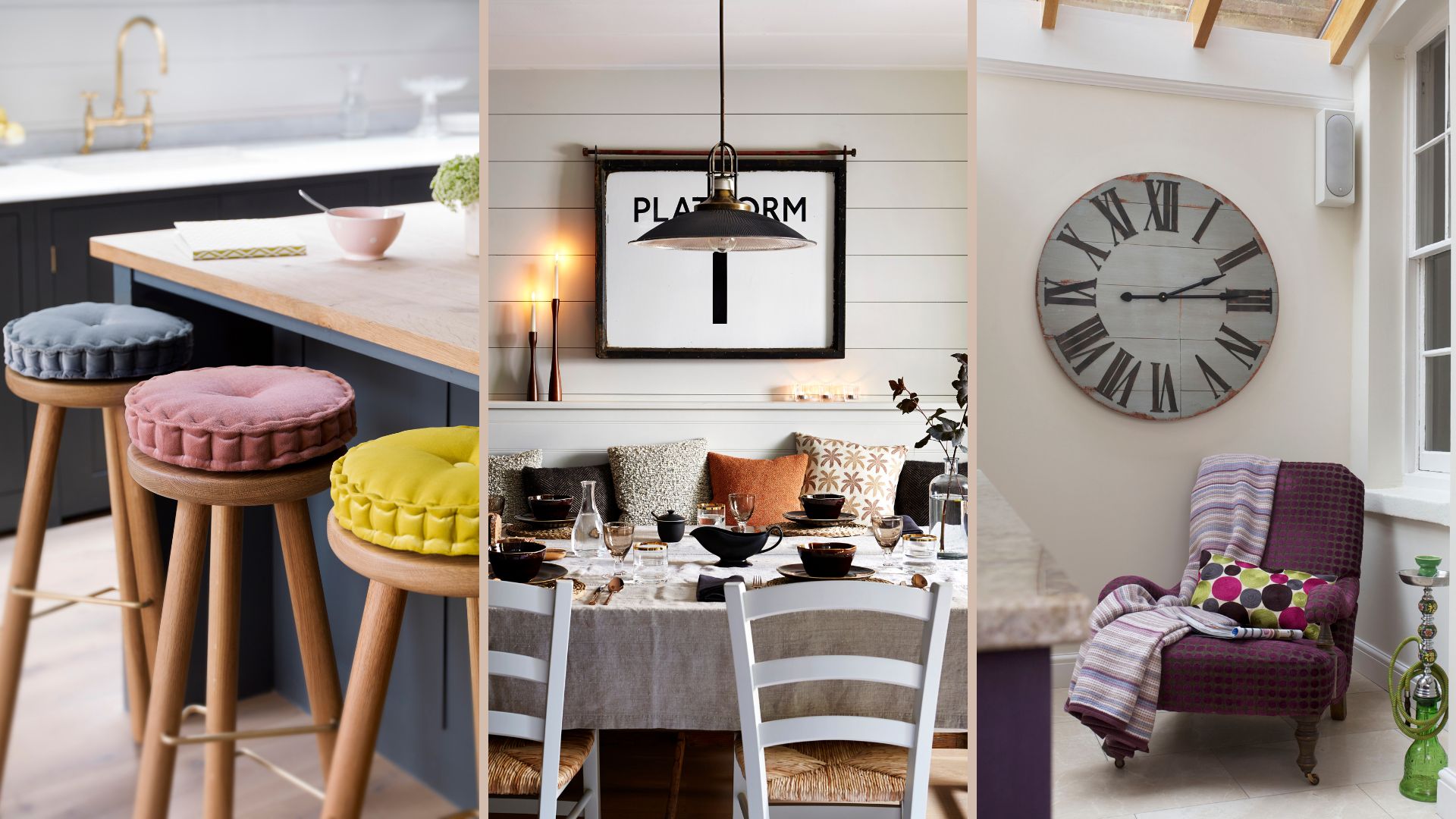
When looking to transform a living one of the first things you think of is to change the soft furnishings to update the sofa, but perhaps feels less relatable when dressing a kitchen. But why?
Adding touches of soft furnishings can not only introduce a splash of warm accent colour but it can soften the space and make it feel more inviting and comfy.
Consider adding plenty of plush cushions to your dining table or any occasional chairs in the kitchen. Make comfy padded seat cushions to add to bar stools to make them feel more inviting. Layer seating with throws to add texture, pattern and colour to make being in the room feel like a gentle warm hug.
7. Show some personality
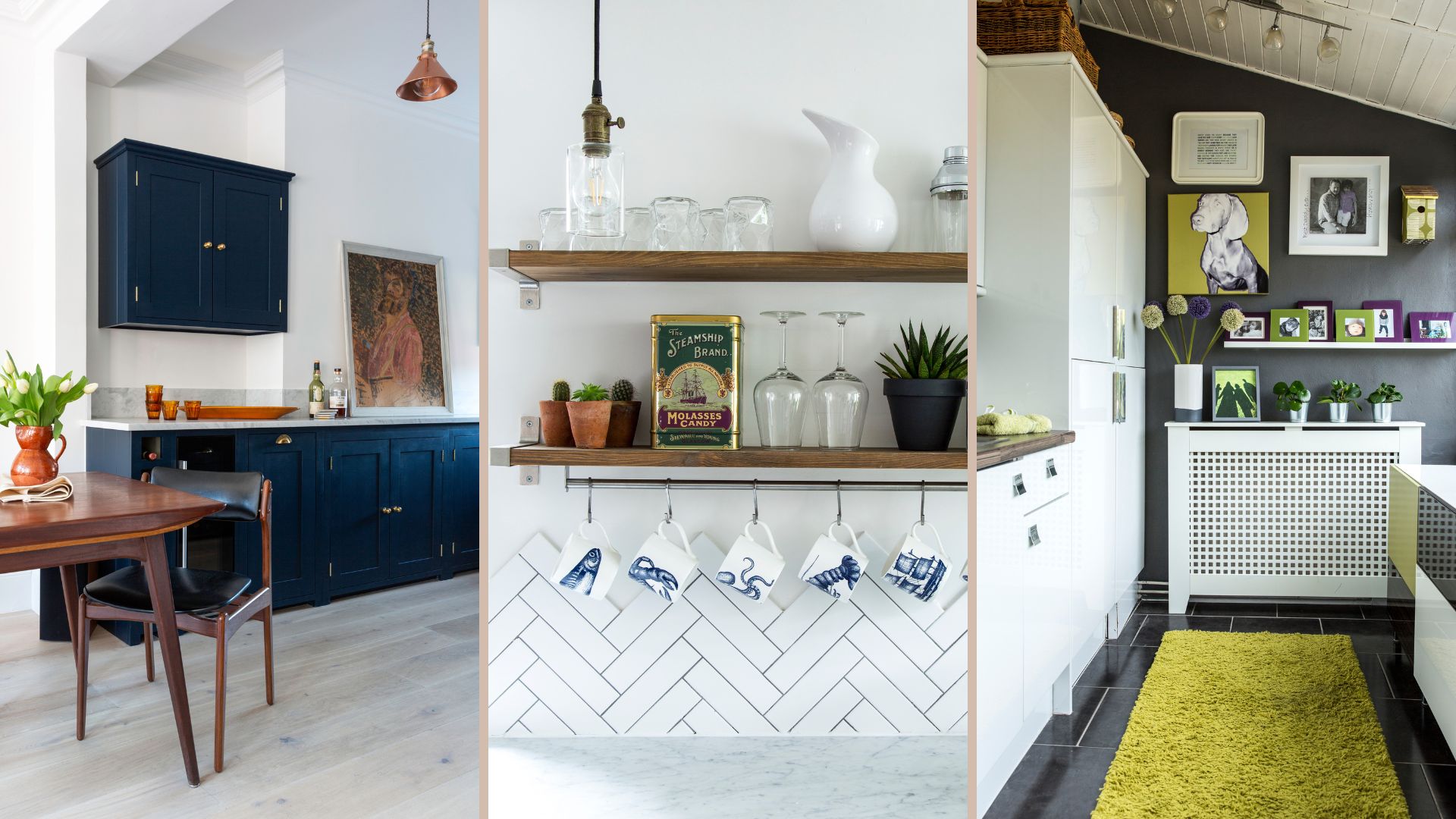
Creating an authentically cosy kitchen comes down to the smaller details that add personality to your home.
"Add smaller details that tie together cohesively to create a space which feels unique and inviting," advises Jen.
"If you have open shelving, don’t be afraid to mix and match dishes and mugs. Several different patterns and unique handmade pieces bring personality and warmth to a space."
"Dried flowers and fresh plants will also add charm to a kitchen. Not only are they decorative, but they are proven to reduce stress and will help make you feel calm and relaxed,’’ explains Jen.
If you need help choosing plants, check out our handy guide to the best kitchen houseplants.
8. Be mindful of window treatments
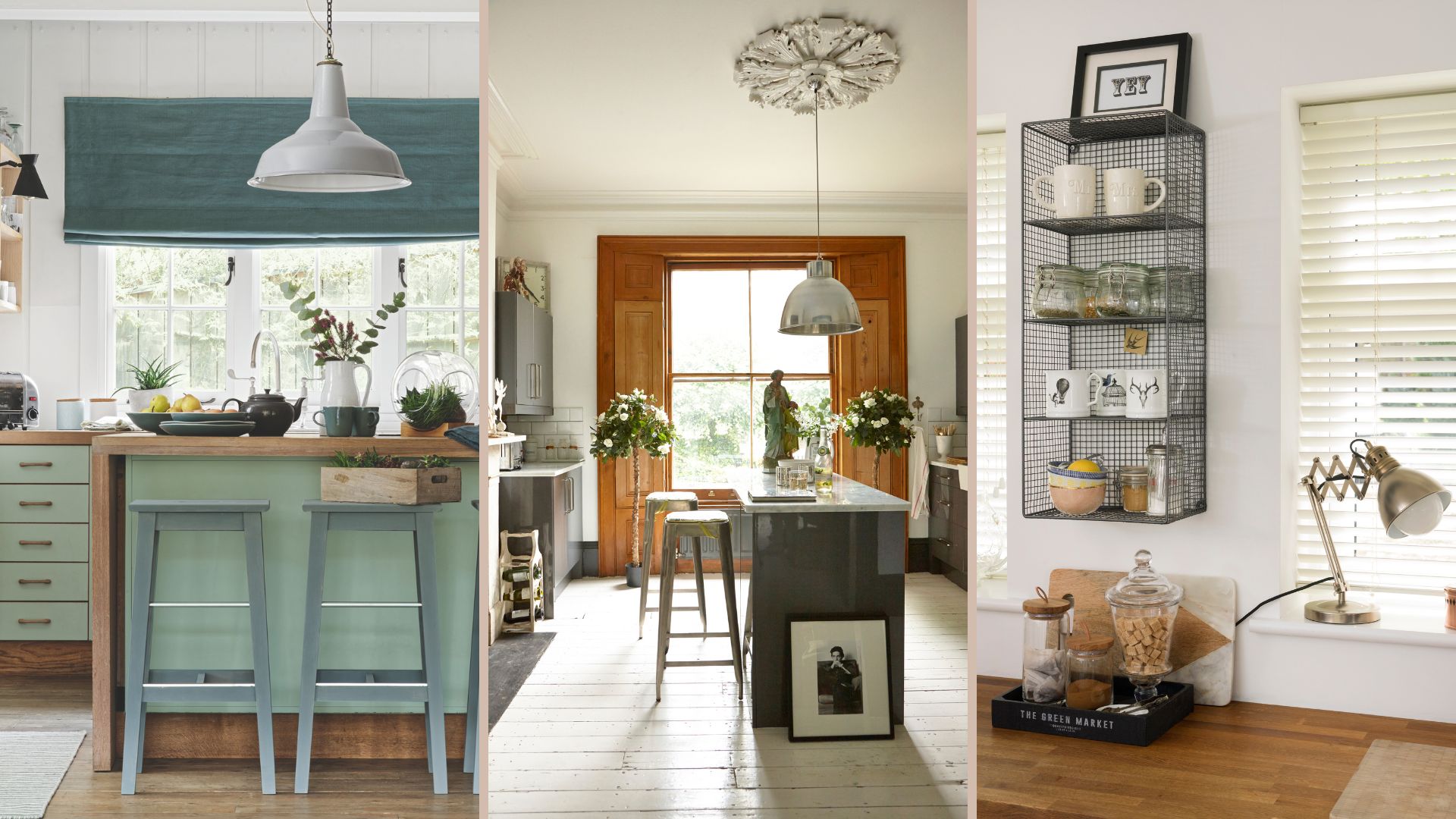
Another area often overlooked when furnishing kitchens is window treatments. This is a common kitchen design mistake but one that needs readdressing because window treatments play such an important role in making the room feel more considered and comforting.
There are many beautiful ways to dress windows, from fabric blinds to wooden shutters. Each one provides a source of privacy from the outside world which goes a long way to make a kitchen feel cosy and intimate.
Aside from the decorative aspects we know from experts that window treatments are one of the biggest tips for saving energy in the home by insulating the glass. This helps keep the house warm which is essential for creating a cosy space.
9. Choose comfy seating
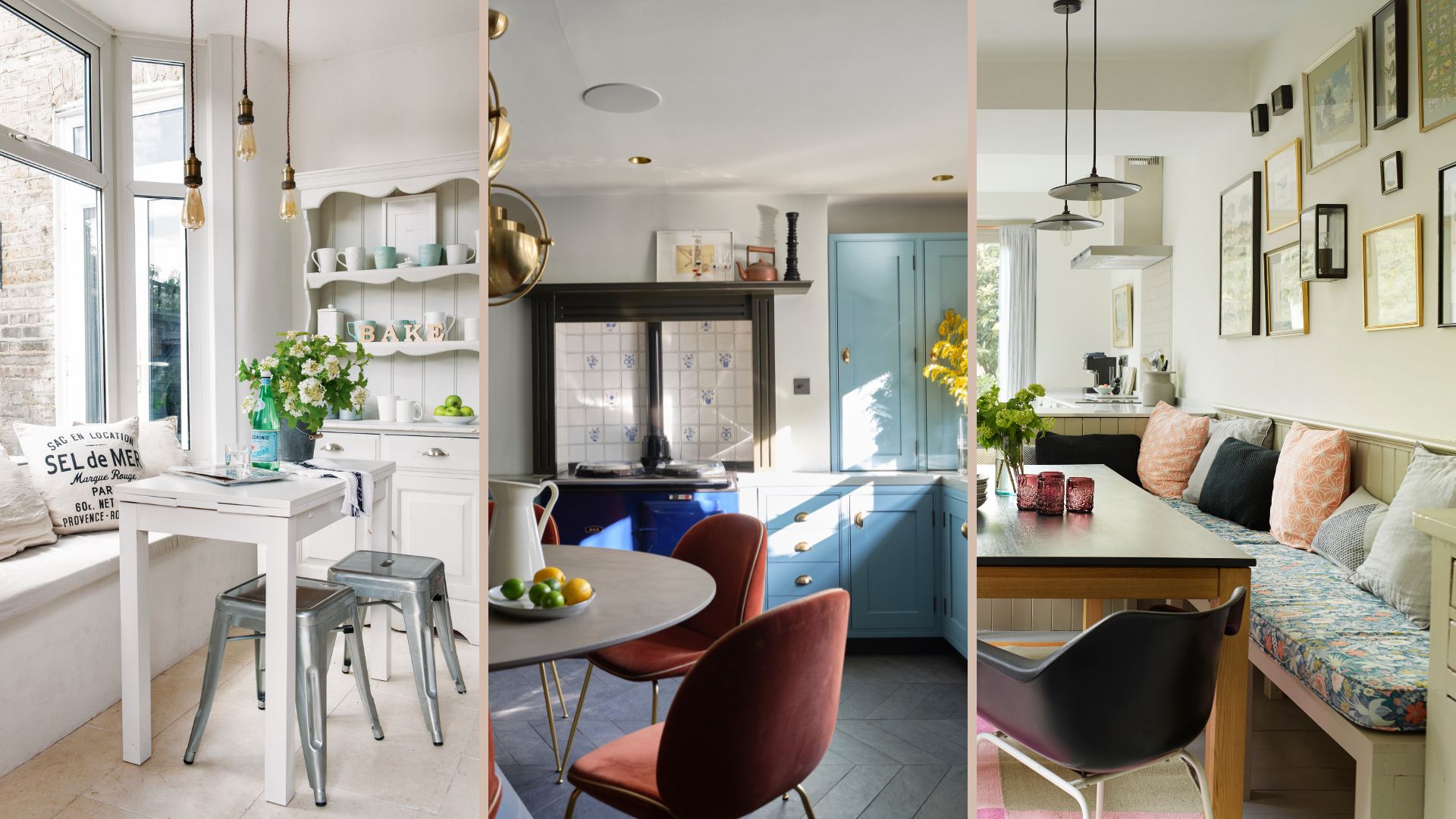
"While it’s important to set the mood and atmosphere of the space, creating a kitchen that’s practically cosy comes down to ensuring you have soft spaces and nooks to land," says Jen.
A sofa is the main ingredient for making a living room feel cosy and inviting. Therefore consider your seating options in the kitchen to make it feel equally as cosy.
"To make your kitchen feel cosy think about incorporating a more 'lived-in' feel," suggests Alex Main, director at The Main Company. "For a cosy, intimate ambience, banquette seating or some sort of upholstered bench seating will instantly add warmth. " Adding banquette kitchen seating maximises space by making more out of awkward corner areas.
"If space is tight, opt for a rustic wooden bench with integrated storage in between cabinets," Jen suggests. "Adding lots of textural cushions and blankets on top of these seating spaces will make them the perfect spots to perch and relax.
"Installing a few bookshelves in a lesser used corner of your kitchen is also a great way to create a cosy reading corner that’s uniquely yours - with a range of your favourite books on show.’’
The kitchen is regarded as a functional space first and foremost but let's not forget it is also a space where we spend a lot of downtime so it needs to serve both purposes. Adopting any one of these simple styling tips can go a long way to make your kitchen feel adequately cosy.







